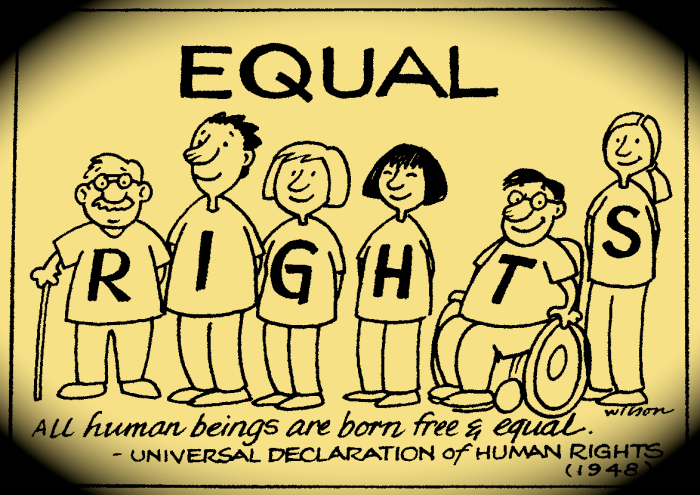A economy usually stresses the equality of all citizens – With economic equality at the forefront, this discourse delves into the complexities of ensuring fairness and equity for all citizens. This principle forms the bedrock of thriving societies, promoting social cohesion, and fostering economic growth. Join us as we explore the multifaceted nature of economic equality, its challenges, and the crucial role governments play in shaping a more just and equitable world.
Throughout history, economic disparities have plagued societies, creating deep divisions and hindering progress. However, a growing recognition of the importance of economic equality has led to a global movement towards policies and initiatives aimed at bridging the gap between the wealthy and the disadvantaged.
Economic Equality: A Economy Usually Stresses The Equality Of All Citizens

Economic equality refers to the fair and equitable distribution of income, wealth, and opportunities among all citizens within a society. It is a fundamental principle that promotes social justice, stability, and overall well-being.
Economic equality brings numerous benefits for citizens, including reduced poverty and income inequality, improved health outcomes, enhanced educational attainment, and greater social mobility. It fosters a sense of fairness and belonging, leading to increased trust, cooperation, and civic engagement within society.
Challenges to Economic Equality, A economy usually stresses the equality of all citizens
Achieving economic equality faces several challenges, including:
- Income inequality:Significant disparities in income and wealth can hinder economic equality.
- Discrimination:Discrimination based on race, gender, ethnicity, or other factors can create barriers to economic opportunities.
- Lack of access to education and healthcare:Limited access to quality education and healthcare can perpetuate economic inequality.
- Globalization:Global economic forces can exacerbate income inequality by shifting jobs to lower-wage countries.
Role of Government in Promoting Economic Equality
Governments play a crucial role in promoting economic equality through policies and programs such as:
- Progressive taxation:Taxing higher incomes at a higher rate can redistribute wealth and reduce inequality.
- Minimum wage:Setting a minimum wage ensures a basic level of income for low-wage workers.
- Social welfare programs:Providing social welfare programs, such as healthcare, unemployment insurance, and housing assistance, can help reduce poverty and income inequality.
- Investment in education:Investing in quality education can provide individuals with the skills and knowledge necessary for economic success.
Social Implications of Economic Equality
Economic equality has significant implications for social cohesion and stability:
- Reduced crime:Economic inequality can lead to increased crime rates due to poverty, desperation, and lack of opportunities.
- Improved social relationships:Economic equality can foster a sense of community and reduce social tensions.
- Enhanced community well-being:Societies with greater economic equality tend to have higher levels of social trust, civic engagement, and overall well-being.
Global Perspectives on Economic Equality
Different countries around the world have varying approaches to economic equality, influenced by factors such as culture, political systems, and economic development:
- Nordic countries:Known for their high levels of economic equality, achieved through comprehensive social welfare systems.
- United States:High levels of income inequality, despite having a relatively strong social safety net.
- China:Significant economic growth in recent decades has led to rising income inequality, but the government has implemented policies to address this issue.
Answers to Common Questions
What are the benefits of economic equality?
Economic equality reduces poverty, improves health outcomes, enhances educational attainment, fosters social stability, and promotes economic growth.
What are the challenges to achieving economic equality?
Challenges include income inequality, wealth concentration, unequal access to education and healthcare, and discriminatory practices.
What is the role of government in promoting economic equality?
Governments can implement progressive taxation, provide social welfare programs, invest in public education and healthcare, and enforce anti-discrimination laws.

